The Power of Marketing: Why It's an Investment and Not an Expense
July 06, 2023
2 Minute Read
.png?width=450&height=280&name=The%20Power%20of%20Marketing%20(1000%20x%20600).png)
Marketing is often seen as an expense that businesses need to budget for. However, savvy business owners understand that marketing is not just an expense, but an investment that can yield significant returns. In fact, statistics show that companies that invest in marketing strategies tend to outperform those that do not. In this blog post, we’ll explore why marketing is an investment and not an expense, backed by real-world statistics.
Marketing Drives Revenue
One of the primary reasons why marketing is an investment is because it has the potential to drive revenue for businesses. According to a study by Deloitte, businesses that effectively leverage marketing to engage and retain customers tend to experience higher revenue growth. Another study by the American Marketing Association found that companies that allocate more budget to marketing tend to have higher sales growth compared to those that do not. In other words, strategic marketing efforts can directly impact a company’s bottom line by generating revenue and increasing sales.
Marketing Builds Brand Equity
Brand equity refers to the value that a brand holds in the minds of customers. Building brand equity is essential for businesses that want to establish a strong presence in the market and create a loyal customer base. According to a study by Interbrand, brands with higher brand equity tend to outperform their competitors in terms of market share and profitability. Effective marketing strategies, such as branding, advertising, and public relations, can help build brand equity by creating awareness, enhancing reputation, and fostering customer loyalty. This, in turn, can lead to increased customer retention and higher customer lifetime value, which can positively impact a company’s financial performance.
Marketing Creates Customer Loyalty
Customer loyalty is crucial for businesses that want to establish long-term relationships with their customers. Loyal customers tend to make repeat purchases, refer others to the business, and provide valuable feedback. According to a study by Harvard Business Review, customers who are loyal to a brand tend to spend more, refer more, and be less price-sensitive compared to new customers. Marketing plays a vital role in creating customer loyalty by fostering engagement, personalization, and customer satisfaction. By investing in marketing strategies that prioritize customer relationship management, businesses can build customer loyalty and reap the financial benefits of repeat business and positive word-of-mouth marketing.
Marketing Differentiates Your Business
In today’s competitive business landscape, standing out from the competition is crucial for success. Effective marketing can help businesses differentiate themselves from their competitors and create a unique position in the market. According to a study by Nielsen, consumers tend to prefer brands that they perceive as different and relevant. Marketing strategies such as market research, branding, and positioning can help businesses identify their unique selling proposition (USP) and communicate it to their target audience. By showcasing what sets them apart, businesses can attract customers who resonate with their USP and are more likely to choose them over competitors, leading to increased market share and revenue.
Marketing Builds Long-Term Value
Marketing is an investment that can provide long-term value for businesses. A well-executed marketing strategy can create a strong brand presence, foster customer loyalty, and establish a competitive edge in the market. These benefits can translate into sustained revenue growth and profitability over time. According to a study by McKinsey, companies that maintain their marketing spend during economic downturns tend to perform better in the long run compared to those that cut their marketing budgets. This highlights the importance of viewing marketing as a long-term investment that can contribute to a company’s overall success and sustainability.
Grow Your Business with Be Found Online
In summary, marketing is an investment that can provide substantial returns for businesses. The evidence is clear – companies that effectively leverage marketing strategies tend to experience higher revenue growth, establish a strong brand presence, foster customer loyalty, differentiate themselves from competitors, and create long-term value. Therefore, it’s important for businesses to view marketing not as an expense, but as a strategic investment that can contribute to their overall success and sustainability.

Josh Barwa
Josh is the VP of Digital Strategy and has been in the digital marketing industry for 18 years. Josh’s main goal is making his clients happy people and his true passion comes from building and delivering winning digital strategies.
CATEGORIES
SUBSCRIBE TO OUR BLOG
Stay up to date with the latest industry best practices in digital marketing!
















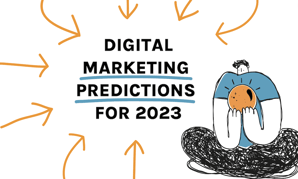






.png?width=339&height=179&name=Webinar%20Banner%20(1).png)

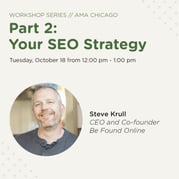

.png?width=339&height=179&name=July%20Webinar%20(Newsletter).png)

.png?width=339&height=179&name=Webinar%20Banner-April-02%20(1).png)
%20(4).png?width=339&height=179&name=Webinar%20Banner-May-02%20(1)%20(4).png)




.png?width=339&height=179&name=March%202023%20Webinar%20Ad%20(autoresponder).png)

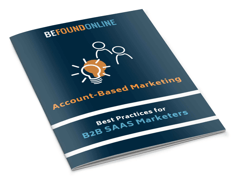




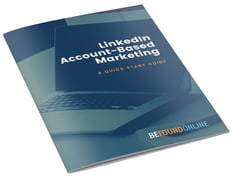



.png?width=339&height=179&name=2025%20Paid%20Media%20(1200%20x%20628%20px).png)








































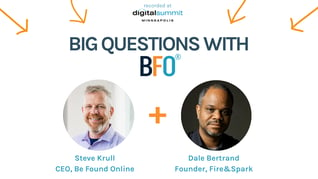
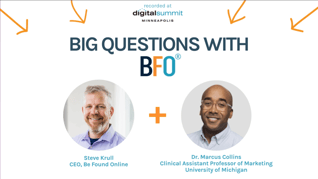

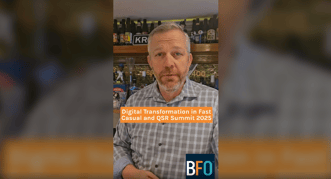









.png?width=339&height=179&name=2026%20Paid%20Media%20Ad%20Specs%20(Twitter%20Post).png)

